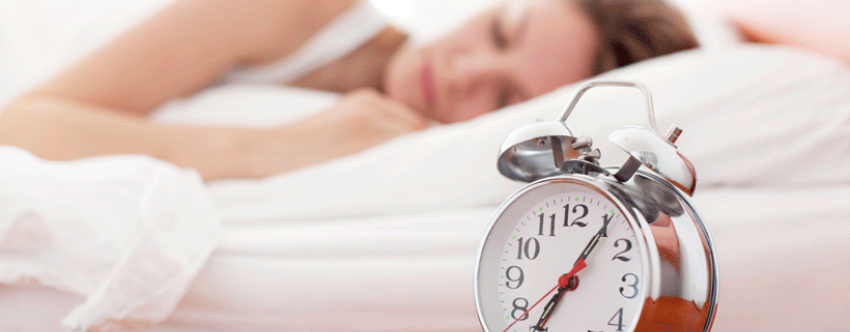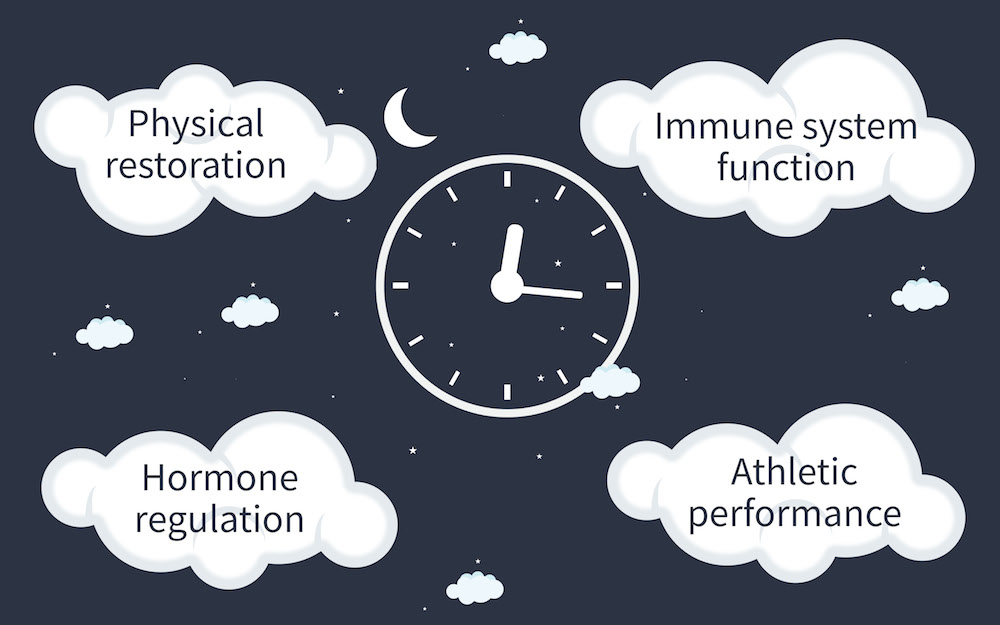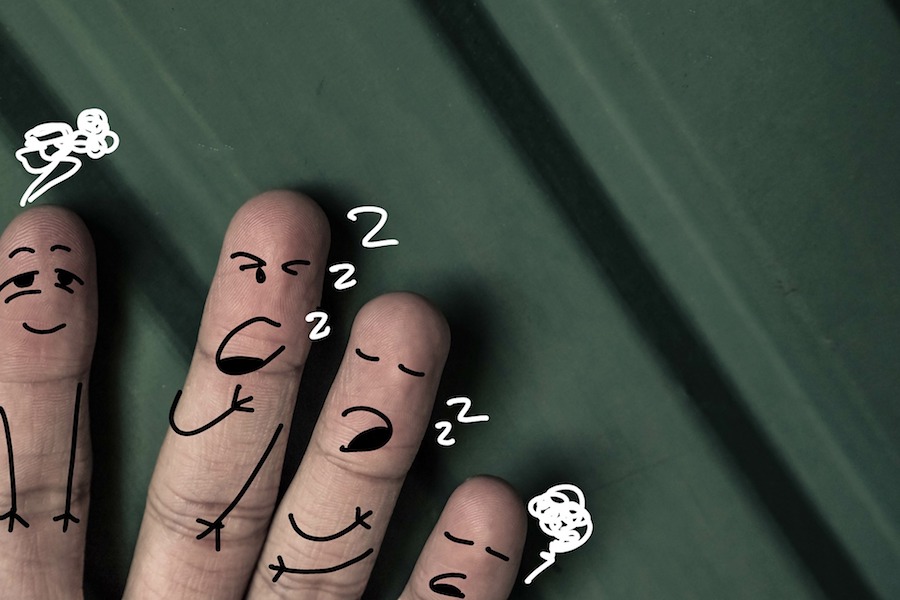News & Views

Why sleep is important for our physical and mental health
'Methought I heard a voice cry, "Sleep no more!
Macbeth does murder sleep” – the innocent sleep,
Sleep that knits up the raveled sleave of care,
The death of each day's life, sore labor's bath,
Balm of hurt minds, great nature's second course,
Chief nourisher in life's feast.’
After he has killed King Duncan, Macbeth is racked with guilt. He wonders whether he will ever be able to sleep again. He reflects on the restorative power of sleep to ease the burden of daily cares, heal the mind and body, and provide nourishment for the soul.
Unlike Macbeth, most of us will not have our sleep disrupted by the guilt of having committed a heinous crime. Instead, we might be troubled by what is happening at school:
- a difficult class
- the behaviour of a child
- workload demands
- a pile of marking
- the lessons we are teaching the following day
- a meeting with a parent.
The physical effects of sleep
As a parent of four grown-up children, I remember vividly the impact of getting insufficient sleep when my children were young. We often joke with new parents about how their baby will affect their sleep and regard it almost as a badge of honour that all parents acquire. But, whether a parent or not, a lack of sleep takes its toll on the body. I was once so tired that I fell asleep standing up during a lesson! Fortunately, it must have only been for a second or two because the pupils, who were working on a piece of writing, didn’t notice.
World Sleep Day is next Friday (17 March) and this year's focus is on how sleep is essential for health. Sleep is important for our physical health for several reasons, including:
- Physical restoration: during sleep, the body repairs and regenerates tissues, including the heart and blood vessels, which can help reduce the risk of health problems such as heart disease, high blood pressure and stroke.
- Immune system function: sleep plays a crucial role in immune system function, helping the body to fight off infections and other illnesses.
- Hormone regulation: sleep helps to regulate the hormones that control appetite, metabolism and glucose processing. Poor sleep can disrupt these hormones, increasing the risk of obesity and diabetes. We are hungrier when we don’t sleep and therefore tend to eat more.
- Athletic performance: sleep is important for athletic performance, as it helps the body to recover and repair after exercise, and can improve reaction time, speed and accuracy. If we play a sport or run, we know that a good sleep pattern is essential for performance and to prevent exhaustion.

The mental impact of sleep
Sleep is important for good mental health:
- Cognitive function: sleep is crucial for brain function, including memory consolidation, learning and problem-solving. Sleep deprivation can impair these functions, making it more difficult to manage stress. Sufficient sleep can help reduce stress and improve overall wellbeing.
- Emotional wellbeing: sleep regulates emotions, improves mood and reduces the risk of developing mood disorders like depression and anxiety.
- Brain function: sleep allows the brain to rest and recover and helps to clear out toxins and other waste products that accumulate during waking hours. This can help improve cognitive function and reduce the risk of developing neurological disorders.
- Getting enough restful sleep can help you to be more productive, engaged and focused throughout the day.
The impact of insufficient sleep
When you don't get enough sleep, beware of these impacts:
- increased inflammation in the body, which has been linked to a range of health problems
- increased stress levels, which can harm mental health
- reduced cognitive function, including impaired memory, concentration and decision-making
- increased risk of accidents and injuries due to decreased reaction time and impaired judgement
- reduced creativity and problem-solving abilities
- impaired social interactions and relationships. (In the classroom, we might be less patient, inclined to lose our temper and find it more difficult to manage the multiple interactions we experience as a teacher.)
How to get a good night's sleep
The following tips for getting a good night's sleep might help if you are finding sleep difficult. We are all different and not every suggestion will apply to you or be effective. If you have young children, your sleep might be disrupted because they wake during the night or get up early. For you, a good night’s sleep might be to go to sleep quickly, to get back to sleep soon after you have settled your children and to sleep well before you are disturbed again.
If you have a partner and you have children who wake you regularly during the night, take a 20-minute nap soon after you have arrived home while your partner is with the children. You can take this in turns if you wish. Napping for even short periods will support your physical and mental health. Google, for example, has sleep pods for its employees for this reason.

Tips for better sleep
- Stick to a consistent sleep schedule. Go to bed and wake up at the same time every day. Some sleep experts say that it is important to keep to your routine at the weekend. I’ve never been able to manage this!
- Create a relaxing bedtime routine. Develop a calming routine before bed to help signal to your body that it's time to sleep. This could include taking a warm bath, reading a book or listening to calming music. Too many teachers work late and don’t have sufficient time to ‘wind down’ before going to bed.
- Limit exposure to screens before bed. Avoid using electronic devices such as smartphones, tablets and laptops for at least 30 minutes before bed, as the blue light emitted by these devices can disrupt sleep.
- Create a comfortable sleep environment. Make sure your bedroom is cool, dark and quiet. Invest in a comfortable mattress and pillows, and consider using blackout curtains, a sleep mask or earplugs.
- Avoid caffeine and alcohol before bed. Avoid consuming caffeine and alcohol in the hours leading up to bedtime as they can disrupt sleep.
- Exercise regularly. Regular exercise can help promote healthy sleep, but try to finish exercising at least a few hours before bedtime. Physical activity can be stimulating and prevent sleep.
- Learn mindfulness meditation and practise it before settling to sleep. You can also use the five breaths exercise. The five breaths exercise is a simple breathing technique where you take five slow and deep breaths, inhaling through your nose and exhaling through your mouth while focusing your attention on your breath and body sensations. It is often used as a quick way to reduce stress, calm the mind, and promote relaxation. A way of visualising this exercise is to imagine your five fingers. As you travel up the outside of each finger, inhale. As you travel down the inside of each finger to where it meets the next finger, exhale.
- Use visualisation. Imagine a relaxing environment, such as a shoreline or lake.
- Play relaxing sounds, such as the sea or a gently flowing river.
- If you wake up or can’t sleep because you have thought of something that you need to do at school, have a pen and paper handy by the bed to make a note of it, rather than worry that you might forget it or invest in a digital voice recorder (dictaphone). The advantage of a dictaphone is that you can switch it on without putting a light on and it doesn’t involve looking at a screen.
- If all else fails, consider a herbal or pharmaceutical solution, even for a short period. While they can have side effects, as we have seen, so does a lack of sleep.
Discover more ways to support and improve staff physical, emotional and mental health with the Staff Wellbeing Award.
About the author

Steve Waters is a wellbeing and mental health consultant and founder/CEO of the Teach Well Toolkit. He is also the author of the Staff Wellbeing Award and Cultures of Staff Wellbeing and Mental Health in Schools (2021).